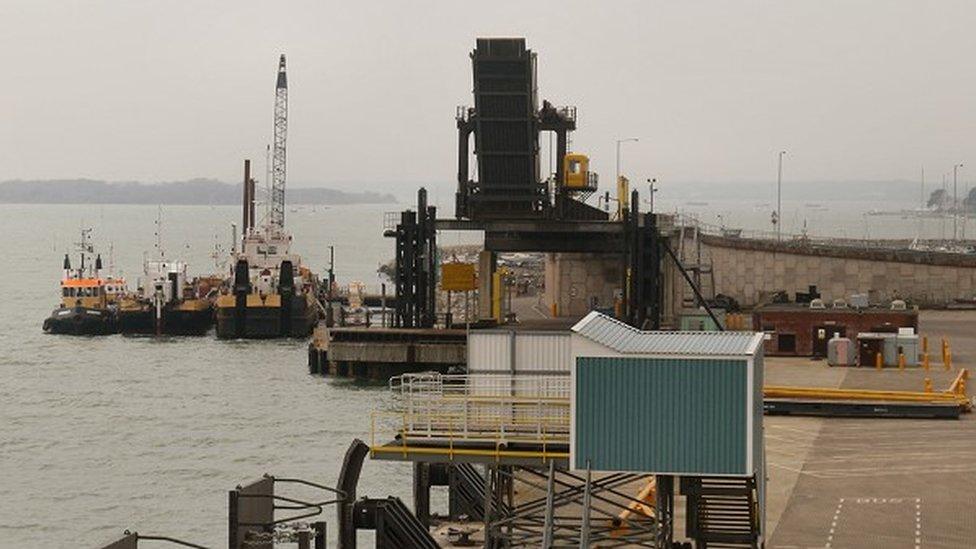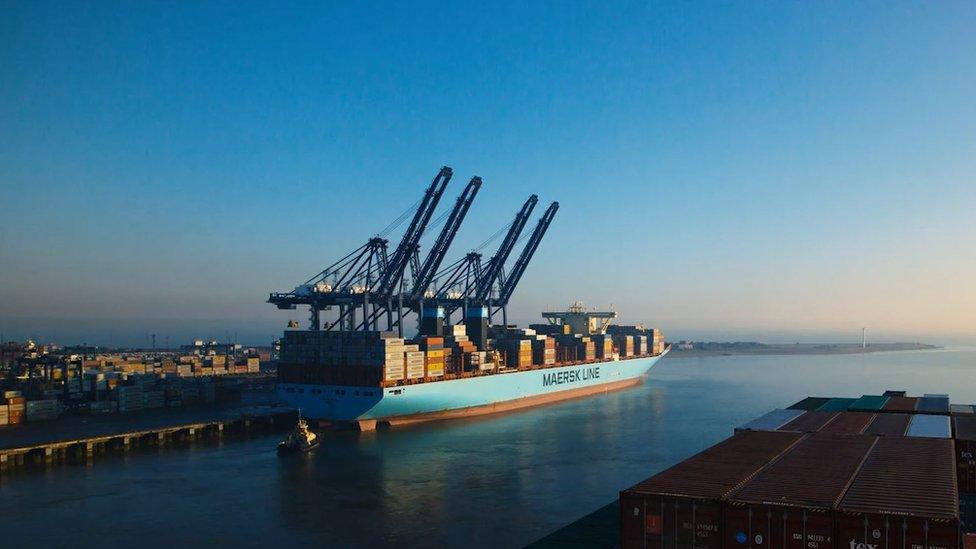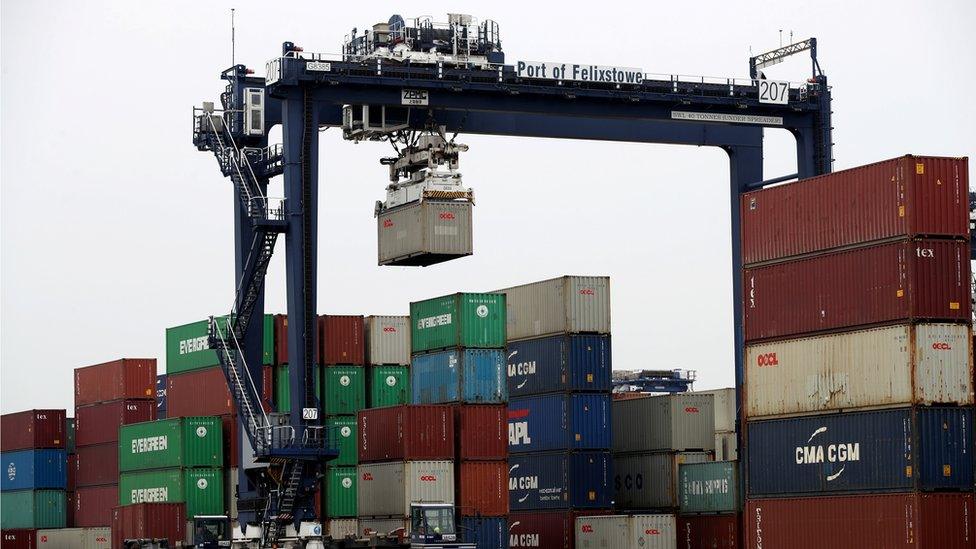Bournemouth, Christchurch and Poole free port status bid
- Published

Poole Harbour offers both passenger and freight services
Free port designation would boost the economy of Bournemouth, Christchurch and Poole by £1.7 billion over 20 years, a council has claimed.
BCP Council, Bournemouth Airport and Poole Harbour Commissioners have submitted a bid to be one of ten free ports to be created by the government.
Supporters claim the status could boost post-Brexit investment through tax-reduction initiatives.
Opposition councillors claim it would adversely affect small businesses.
Free ports allow firms to import goods and then re-export them outside normal tax and customs rules.
'Freight corridor'
The council's £50,000 bid for free port status includes a lower-tax "outer boundary" zone, which includes both Bournemouth Airport and the Port of Poole, according to the Local Democracy Reporting Service.
A new customs-exempt "freight corridor" would also be created between the port and airport.
Council leader Drew Mellor said the free port would create up to 5,600 jobs across the region, over the first two decades.
"Currently, the economic growth opportunity at the port and airport is constrained by upfront enabling infrastructure requirements, which the free port would unlock," he said.
He said the bid, which has not been made public, also included a new maritime and aviation "centre of excellence", aimed at addressing a "skills shortage" in the industries.

What are free ports?
Also called free-trade zones, they are designated areas where the normal tax and tariff rules of the country in which they are based do not apply.
They allow goods to be imported, manufactured and re-exported without being subject to checks, paperwork, or import taxes, known as tariffs.
This means raw materials can be imported, then engineered into whole products for export.
Typically, companies operating in the zone pay lower taxes, such as reduced VAT and lower rates of employment tax.
But critics argue they simply defer the point when import tariffs are paid, which then still need to be paid at some stage.
The UK last had such zones in 2012 and they are permitted under EU law.

However, concerns have been raised that it would divert trade from different parts of the country, and Labour councillors have opposed the bid.
Former cabinet member councillor Lewis Allison said there would be a "catastrophic" impact in terms of a loss of income to the council and to smaller businesses.
About 30 regions across the UK have applied to become free ports and the government is expected to announce scheme approvals in March.

Follow BBC South on Facebook, external, Twitter, external, or Instagram, external. Send your story ideas to south.newsonline@bbc.co.uk, external.
- Published8 December 2020

- Published25 November 2020

- Published2 August 2019
